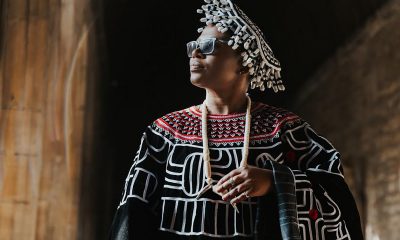Africa
Six queer Nigerians talk about what Pride means to them
Same-sex relationships remain criminalized in country
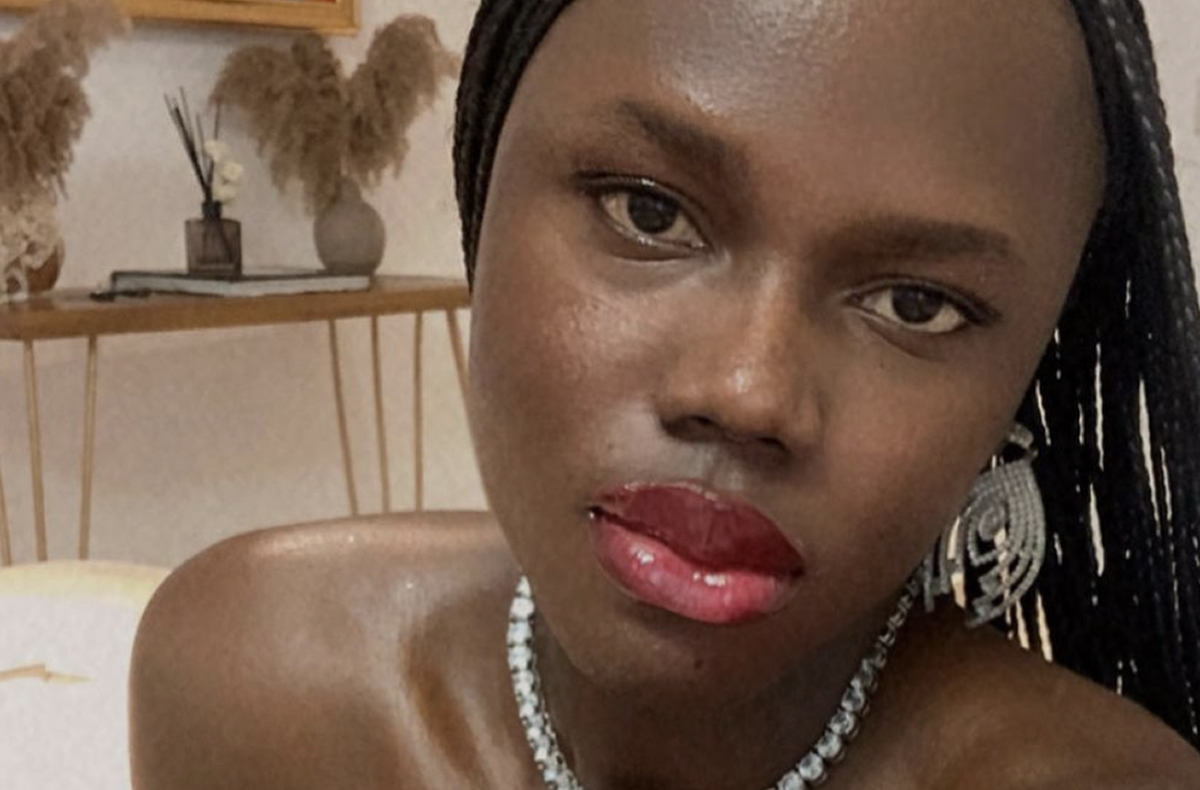
In a world that continually strives for progress and inclusivity, the rights and experiences of LGBTQ individuals remain a paramount measure of a society’s commitment to equality. This holds true for Africa, a continent that grapples with a complex tapestry of cultural, religious and legal challenges surrounding queerness. Specifically, Nigeria stands as a striking example, where the struggle for LGBTQ rights intertwines with deeply ingrained societal norms and the weight of colonial legacies.
Across Africa, the LGBTQ community faces a range of legal and social hurdles, often rooted in colonial-era laws and cultural conservatism. These struggles mirror a global pattern, where queerness intersects with historical prejudices, societal biases and a lack of understanding. While some African nations have taken significant steps toward recognizing and protecting LGBTQ rights, Nigeria remains ensnared in a deeply polarized landscape.
Nigeria’s legal landscape is marked by the introduction of anti-gay laws that have exacerbated the challenges faced by the queer community. The Same-Sex Marriage Prohibition Act, enacted in 2014, is one such legislation that has perpetuated discrimination and created an environment of fear and hostility for openly queer individuals. Under this law, same-sex relationships are criminalized, with penalties ranging from imprisonment to public ostracism.
Within this oppressive framework, queerness takes on a profound significance for individuals who dare to express their authentic selves. It becomes a powerful assertion of identity, a catalyst for change, and a pursuit of equality and freedom. The queer community in Nigeria embraces diverse identities, encompassing sexual orientation, gender identity, and gender expression, challenging conventional norms and redefining societal perceptions.
For many openly queer Nigerians, Pride month serves as a symbol of resilience, solidarity and hope. Despite the absence of large-scale public celebrations, queer individuals and their allies find ways to commemorate and uplift the community’s spirit. Pride month offers an opportunity to foster dialogue, raise awareness and amplify voices that have long been silenced.
At its core, queerness in Nigeria embodies a profound longing for acceptance, understanding and love. It calls for a society that recognizes and values the richness of human diversity, free from discrimination and prejudice. Queerness invites us to question the notion of what it means to be human, to challenge the confines of traditional gender roles, and to embrace love and relationships in all their diverse forms.
As we explore the experiences of openly queer individuals during Pride month in Nigeria, it is essential to recognize the ongoing struggle for equality. It is a struggle that demands our attention, empathy, and a collective commitment to dismantling the barriers that hinder progress. By amplifying the voices and stories of the queer community, we can begin to foster an environment of inclusivity, understanding, and acceptance in Nigeria and beyond. The Washington Blade spoke with seven queer Nigerian on what Pride month means to them, amid the country’s extremely strict anti-gay policies.
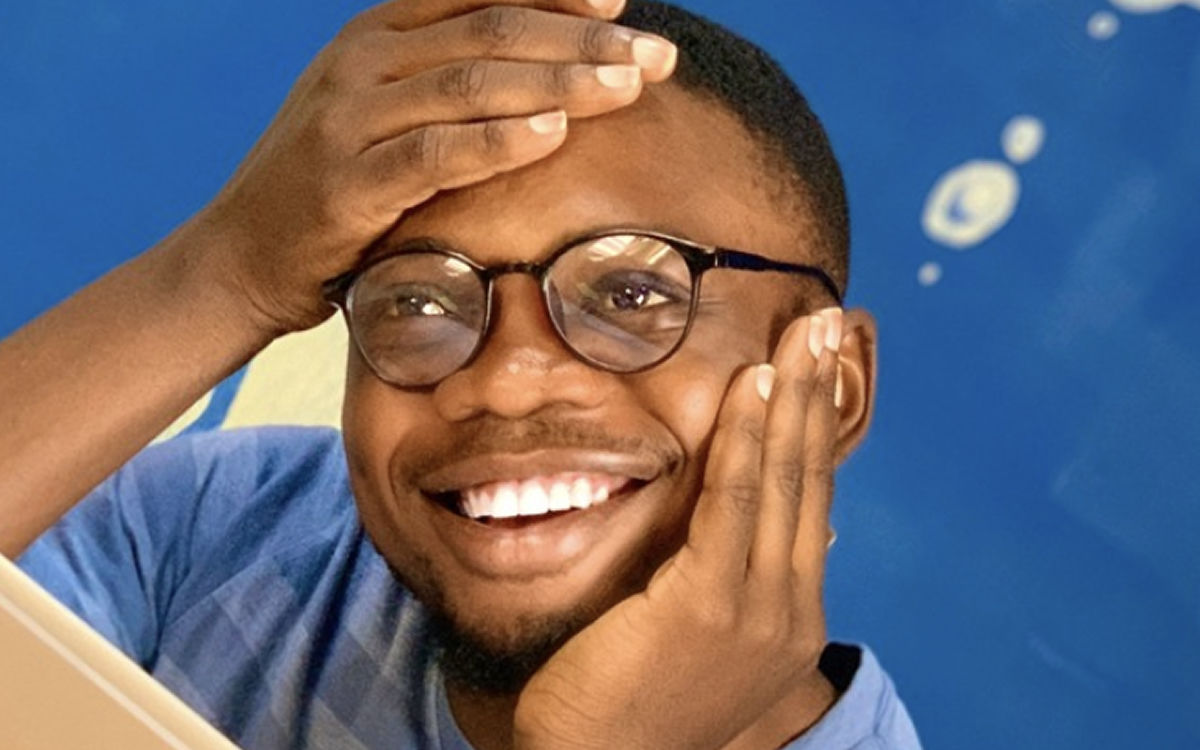
Justin Chidozie (He/Him)
Justin Chidozie founded the Center for Health Education and Vulnerable Support in 2019. CHEVS prides itself as a people-centric society, which pushes for everyone to have equal access to health and human rights, irrespective of sexuality, gender and social status.
“For me, it’s simple,” he tells the Blade. “It’s celebrating resilience, celebrating community, and also celebrating the ancestors of the LGBTQI+ advocacy movement. I do not just see it as the whole parade, but I [also] see it as a time of reflection of how far we have come. This year, Pride [was] extremely special to me because [we] have seen the rise of the anti-gender movement, and the christian evangelical movement in Africa, trying to support the parliament with all the funds at their disposal, trying to criminalize LGBTQI+ identities.”
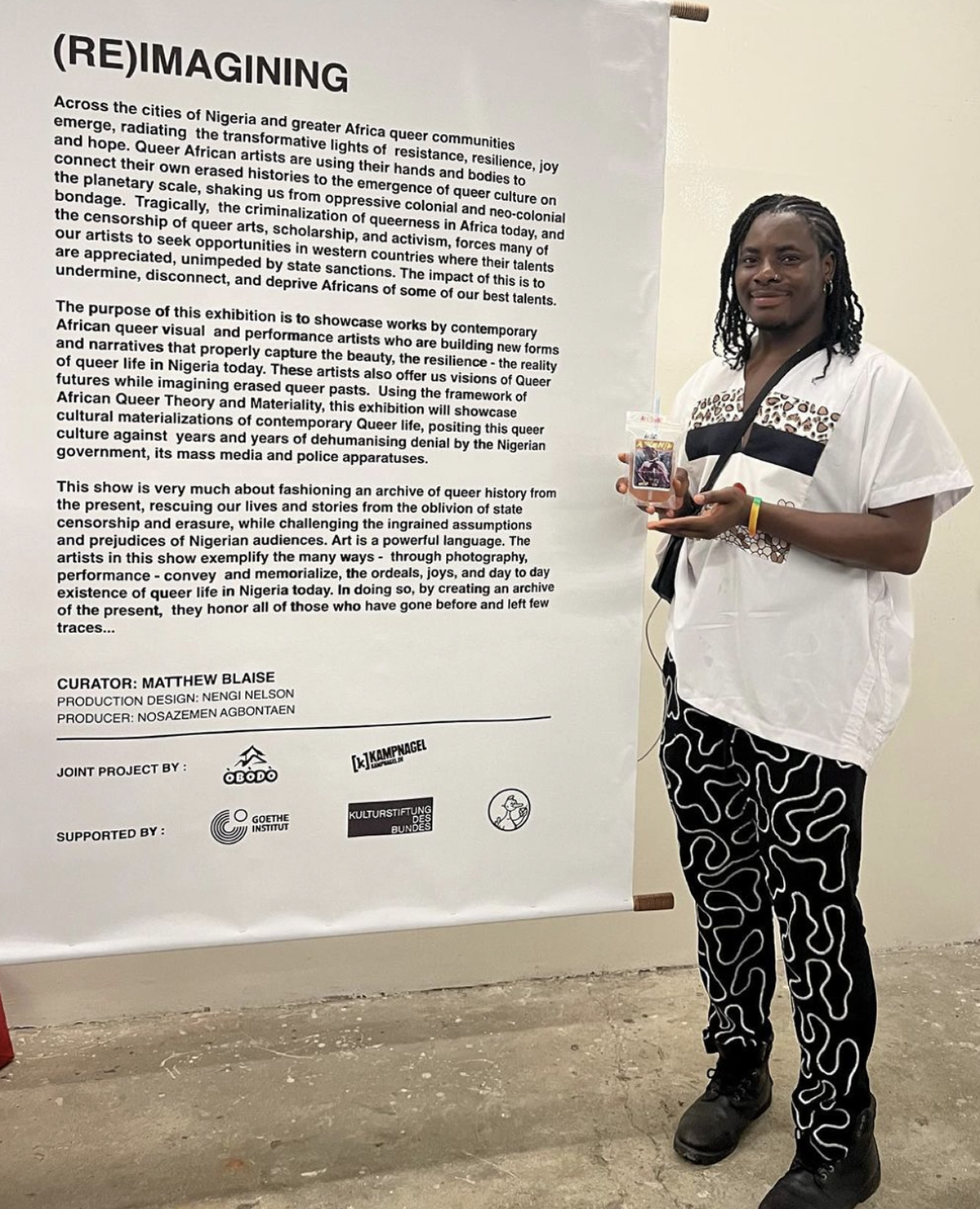
Matthew Blaise (They/Them)
Matthew Blaise has been one of the most vocal activists of queer rights in the conservative Nigeria. They’re the founder of Obodo Nigeria, a Nigeria-based non-profit organization that’s working to promote positive representation and humanization of queer people through educating, upholding, empowering, and promoting the rights and humanity of all Nigerians.
“Pride month for me is honestly just like every other month,” they say. “I mean, it’s great that it’s been celebrated, but within Nigeria, it’s just like every other month; and I say this because I still have to deal with the struggles of being queer for everyday of my life. For me, it’s also a reminder of my own resilience and resistance within this largely homophobic and transphobic framework of a country. It’s really just a reminder for me to celebrate that power that I have, and the one that has kept me going. I see it as one of those times when I have to remind myself that I am deserving of love, care, and security.”
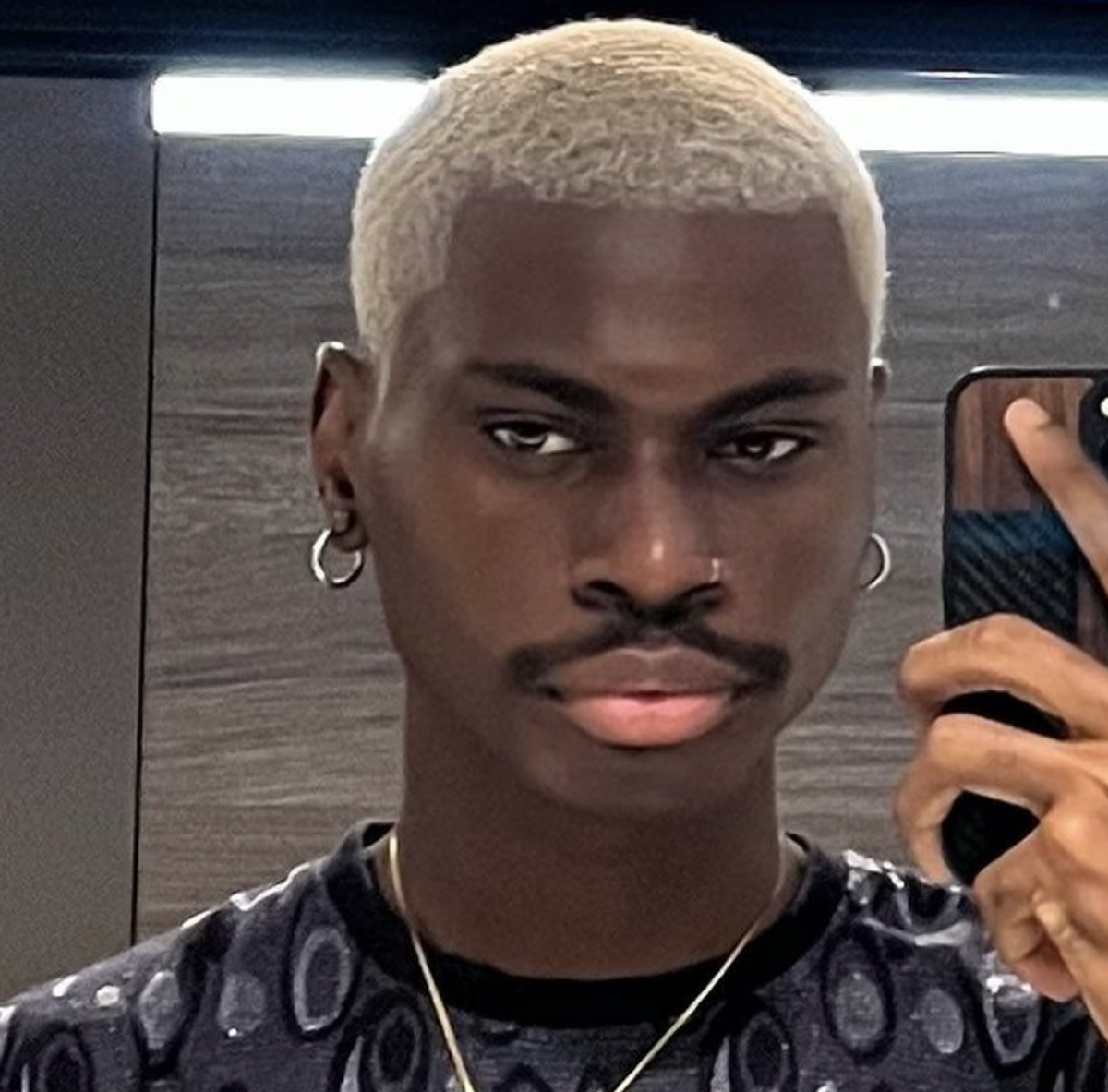
Chisom Peter Job (He/Him)
Chisom Peter Job is an openly queer journalist and the current managing editor of film and television media company, Statement Films, built for African creators. Job’s works, which have been featured in Washington Post, the New York Times, Al Jazeera, etc., really focuses on queer life, and how that interfaces with our screens.
“Pride month for me is a month of happiness, a month to be very queer, and a month to celebrate queerness in a very different way,” he tells the Blade. “I mean, I celebrate my queerness every other day, but living in Nigeria, Pride month is just that month when there are a lot of things happening to queer people, and [we’re] just free to do whatever. It’s an important celebration done in Nigeria because a lot of things happen that makes it easy for queer people here to enjoy what it’s all about. Pride balls happen in other places outside the country, and we’ve managed to create a space for it to easily happen here. Whilst the SSMPA (Same-Sex Marriage Prohibition Act) exists, the Pride tells them that ‘we are here, and we’re here with Pride.’”

Fola Francis (She/Her)
Fola Francis is an openly transgender Nigerian woman, who is the founder of fashion brand, Fola Francis, and a nascent food (salad) blogger. Last year, she made “herstory” by being the first openly trans woman to walk on the runway at Lagos Fashion Week, one of the biggest fashion conventions in Africa. This year, she played host to the Ball Party of Pride in Lagos.
“Celebrating Pride in a country like Nigeria where queer lives are criminalized is just, for me, pushing back against the shitty laws that exist to invalidate our sexual orientations and gender identities,” she says. “Ballroom Culture for example, is freedom at its peak. There’s just this level of freedom and no judgement, just community and over the top fun. It’s the most beautiful thing ever. The fact that we’re still celebrating and resisting amidst this chaotic climate for queer people, is what makes it surreal, and even more special. We’re damning the consequences and celebrating our beauty and uniqueness.”
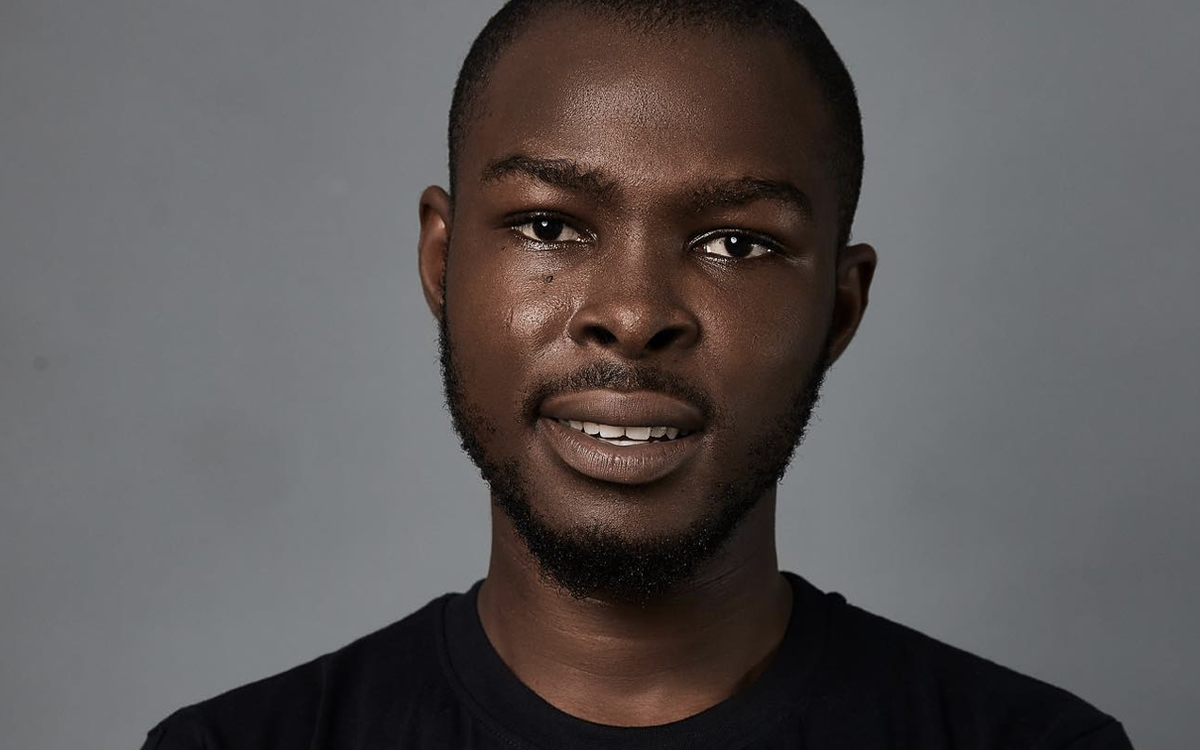
Olaide Kayode Timileyin (He/They)
Olaide Kayode is an openly queer Nigerian activist who runs the queer-focuded organization and media, Queercity Media. Although first started as a podcast called Queercity Podcast, the center of Timileyin’s works premises on celebrating and telling the untold stories of LGBTQ Nigerians and across Africa. To that end, they’ve worked with platforms like HBO, Grindr, etc., and have been one of the leading organizers/founders of Pride in Lagos, an annual, and one of the most widely anticipated gatherings of queer Nigerians.
“At the core of our work at Queercity is ‘queer joy,’ and that is not just about building resilience everyday or speaking against policies, but that we also carry queer joy. That is what Pride means to me,” they say.. “It is carrying those trauma, those shame, that fear, and every other negative thing into the dancehall, and celebrating the discarding of them. It’s proof that we still thrive, as we take the little we have, and create joys/smiles from it.”
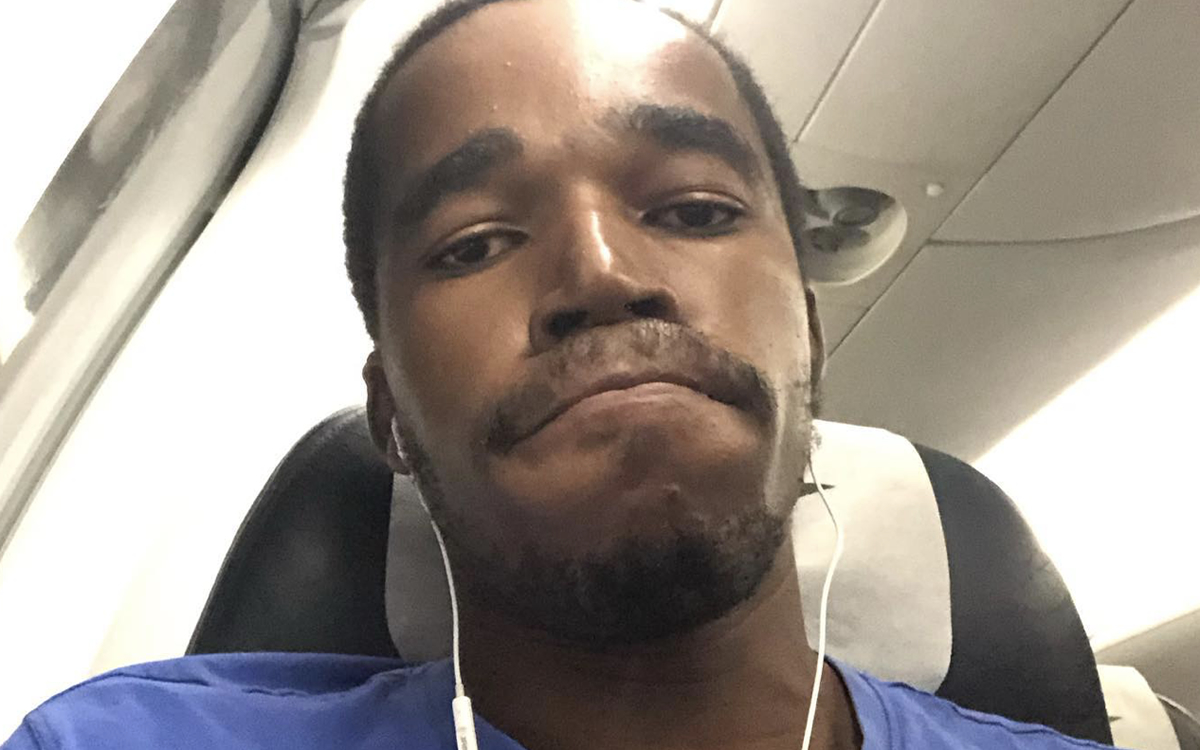
Rex Okey Opara Jr. (He/Him)
Popularly called Raldie, Rex Okey Opara, Jr., is an openly queer multidisciplinary musician and artist with an unconventional, creative and fluidity in his tone. His sounds are highly mysterious, and it takes a certain level of attention to grasp the undertone of the message. His songs mostly emerge from a place of personal experience, and are really just a nuanced atonement to life in general. He was one of the key performers at Pride in Lagos, and has had the chance to do a fellowship at Germany-based talent hub, Goethe Talents.
“When I think of Pride month, I think of it as how everyday should be, which is loving life in confidence in who I am as a queer person. It’s really just another time to celebrate every facet and piece of me, without shame, worrying, or expectations,” he tells the Blade. “In Nigeria, there aren’t a lot of opportunities for our queerness to be acknowledged. A lot of times, society shapes itself in such a way that queer people are usually read as invisible and unworthy. I think it’s just as important a celebration as any, to say to ourselves that even if the world doesn’t see us, we see ourselves, and we love each other.”
Africa
American Evangelical churches masquerade as connoisseurs of African family values
Anti-LGBTQ Family Watch International, partners held conference in Nairobi last month

On Friday, May 16, 2025, Family Watch International and its partners gathered in Nairobi, Kenya, for a week-long conference themed “the Pan-African Conference on Family Values.” Family Watch International is a U.S. Christian conservative organization led by the infamous Sharon Slater. This anti-choice and anti-LGBTQ+ organization lobbies in the United Nations and countries around the world to push their anti-rights and anti-gender agenda.
This wasn’t the first conference convened on East African soil; one such was held in Uganda, from May 9-11, 2025, where Family Watch International was also a part. East Africa seems to be the hub for conservative U.S. evangelists, and one wonders why. The conference is a series of conferences focusing on what they call traditional African family values. Again, one wonders what gives an American organization the authority to speak to Africans about African Family values. After the May gathering in Nairobi, the delegates released a press statement introducing and claiming to be adopting what they labelled “The Nairobi Declaration on Family Values.”
Funded misinformation
This article was thus born to review and address, particularly, the “African family” ideas purported in the declaration. The first inquiry is, who is funding the conference? This conference is heavily funded and guided by the ultraconservative far-right evangelical movements from America and Europe. The African hosts, the Kenya Christian Professionals Forum and the Kenyan Ministry of Labor and Social Protection and actors are merely tokens in this scheme aimed at taking over Africa by erasing its actual values and redefining them from a Western and Eurocentric religious lens. The colonial missionaries historically employed this very familiar move. Another blatant untruth in their declaration is the claim that they represent governments, civil society, academia, religious bodies, and “allied international partners.” There has been no evidence to prove this claim, except for the participants who are known conservatives, infamous for their hate and anti-rights rhetoric from countries such as Uganda, Kenya, and South Africa. This piece of misinformation and disinformation is one of the strategies they employ to make it seem like most, if not all, African governments and masses approve of their unscientific absurdity.
African Family values owned by foreign entities
According to the declaration, their engagements aim to “Promoting and Protecting Family Values in Challenging Times,” advocate for and protect the “natural family.” It is rather peculiar that American and European organizations would lead a conversation about African family values. These are modern imperialists; they intend to cement their Western-centric idea of a family. Their family structure comprises a mother, a father, and children, while the African family is beyond that. Although nuclear family units do exist within African society, it is the more nuanced family structures consisting of “children, parents, grandparents, uncles, aunts, brothers, and sisters who may have their own children and other immediate relatives” that dominate the African family traditions. Often in rural areas, children are communally raised by their grandmothers, aunts, and siblings, as the parents go to the cities for economic opportunities and serve more as financial support for their young. It is therefore naïve for these modern imperialists to falsely claim a singular and rigid definition of family, especially as it concerns African people. Failure to acknowledge the diversities and complexities that exist within African family structures is both delusional and a clear indication of how there is nothing Pan-African about the conference itself.
Nothing Pan-African about it
Furthermore, how does a Pan-African family conference discuss African family values without African traditional leaders, elders, and spiritual leaders? Their exclusion of these figures demonstrates that they uphold the colonial and missionary legacy. It remains the view of the majority of Africans that those in traditional roles are the true custodians of the African culture, language, traditions, customs, and values, and these individuals clearly misalign with these modern imperialists’ agenda and mandate, thus illegitimizing claims of Pan-Africanism and protecting African family and values. The cognitive dissonance is evident in African actors who adopt those imported religious beliefs and regard them as superior to true African spirituality and culture, making these individuals modern imperialists.
Misleading the people
The intentional misuse of the term “Pan-African” not only misleads but can also entice those who believe what the term has historically meant, while in actual fact, the ideals they are spreading are far from Pan-Africanism. Meanwhile, African human rights organizations and those who can legitimately claim Pan-Africanism are concerned about colonial laws and the reform and eradication of colonial legacies. The modern imperialists, on the other hand, are reinforcing the colonial legacy by using confusing and dividing language aimed at causing moral panic among African communities.
Erasure
Activists in Kenya who have been following and monitoring the work of Family Watch International in Africa have argued that their agenda poses a grave threat to erasing Africa’s rich diversity of families. What the conference deems un-African are the same characteristics that the colonial missionaries historically labelled undesirable when they indoctrinated African societies in Christianity and its values, when Africans were made to believe that their own spiritualities are demonic.
The term “values” becomes redundant when it is solely tied to Christianity and disregards true African realities. They are causing confusion among African societies through the use of desirable and triggering language such as “Pan-Africa” and “African values.” When people are divided and busy fighting each other, important issues will fall through the cracks, go unnoticed, and there will be a lack of accountability. These modern imperialists use tactics to distract the African nation with these ideas that historically have never been a problem within African societies; meanwhile, the looting of the African land continues, and so does the exploitation of its minerals and resources. This article is part of the Southern Africa Litigation Center’s campaign around addressing hate speech, misinformation and disinformation. #StopTheHate #TruthMatters
Daniel Digashu is a consultant at the Southern Africa Litigation Center.
South Sudan
The forgotten struggle: LGBTQ refugees and asylum seekers in South Sudan
June 20 is World Refugee Day

As the world prepares to mark World Refugee Day on June 20, discussions will echo across continents about war, displacement, and humanitarian assistance. But there is one story that is often left out — a story of a people who are doubly displaced, constantly under threat, and too often excluded from protection programs. We are the LGBTQ+ refugees and asylum seekers living in South Sudan, particularly in Gorom Refugee Settlement, and our daily struggle for survival continues in silence, far from global headlines and political promises.
We are refugees who fled our homes in Uganda, Rwanda, Burundi, the Democratic Republic of Congo, Ethiopia, and Sudan — countries where being lesbian, gay, bisexual, transgender, or queer means being hunted by the state, persecuted by society, and disowned by our own families. Many of us first found temporary safety in Kenya, only to be forced to flee once more as hostility and violence found us even there. We ended up in South Sudan, believing it might be safer. But we were wrong.
What we have experienced is a relentless cycle of flight and fear. We are tired of running, tired of hiding, and tired of being treated like we do not exist.
Fleeing persecution, only to face more
The reasons we fled our home countries are all rooted in systemic hate: we were accused of witchcraft, imprisoned for who we love, subjected to forced “conversions” or exorcisms, and physically assaulted by family members and neighbors alike.
Lesbian women in Uganda and Rwanda were forced into marriages with men, some even raped by their own relatives to “cure” them. Gay men in Burundi and Congo were arrested, tortured, and publicly humiliated. Transgender individuals in Ethiopia were stripped of all dignity, mocked in the streets, denied medical treatment, and in some cases beaten to the point of unconsciousness. Bisexual youth were disowned and kicked out of their homes. And queer children — or children simply perceived as different — were molested, assaulted, or abandoned.
We thought Kenya might provide refuge. For a while, it did. But soon, even the refugee camps in Kenya became unsafe. Attacks on LGBTQ+ individuals increased. Some of us were sexually assaulted inside UNHCR facilities. Local authorities turned a blind eye. The Kenyan government ultimately declared it would no longer support resettlement for LGBTQ+ asylum seekers. And so, once again, we fled.
This time, we crossed into South Sudan. And again, we hoped for safety. But at Gorom Refugee Settlement, we found yet another kind of danger — one that is quieter, colder, and just as cruel.
What life looks like in Gorom: constant threat and no protection
At Gorom, we face daily verbal abuse, physical violence, economic isolation, and state indifference. LGBTQ+ refugees are attacked by fellow refugees and members of the local host community. In some cases, we are targeted by our own block leaders, who refuse to distribute food or health services if they suspect we are queer. In clinics, trans women are mocked, told they are “possessed,” and denied even basic medical care. Those of us living with HIV face layers of stigma — our sexual orientation is blamed for our condition, and we are often left without access to lifesaving medication.
Safe housing for LGBTQ+ refugees does not exist in Gorom. Couples are forced to pretend to be siblings or risk being separated — or worse. One gay couple was recently threatened by men in their block who accused them of “bringing demons.” They have not slept in the same shelter since.
Lesbian sisters, sharing a small shelter to survive, told us:
“We sleep in turns at night — one keeps watch while the other rests. We’ve been threatened with rape three times. Our block leader told us to leave or act straight.”
Children of LGBTQ+ parents, or those who are gender non-conforming, are bullied at school or excluded entirely. Some are even denied meals at community kitchens — punished simply for who their parents are.
For many queer women, survival sex work becomes the only option. There is no employment, no support, and no safety. This leads to alarming rates of sexual assault and HIV infection. Yet when they seek help, they are either ignored or blamed.
And while mental health crises are rising, there is no trauma support designed for queer refugees. Many of us have attempted suicide. Some have succeeded.
We have evidence, but no urgency
In early 2024, a SOGIESC (sexual orientation, gender identity and expression, and sex characteristics) assessment was conducted by peer human rights monitors inside Gorom. It documented the situation clearly and thoroughly.
• Many transgender individuals had been physically assaulted in the span of just three months
• Lesbians received death threats or were targeted with “corrective rape”
• LGBTQ+ persons were denied medical services
• Attempted suicide
These are not just statistics. These are names, lives, and stories. And yet, most of the reports were never acted upon. Bureaucratic delays, unclear processes, and shifting responsibilities have turned urgent threats into forgotten files. Each time we cry out for help, we are told to wait. But in our world, waiting can be fatal.
Acknowledging those who have helped; and those who must do more
We extend sincere appreciation to the Commission for Refugee Affairs of South Sudan. Since December 2023, LGBTQ+ refugees were allowed to remain in Gorom with a degree of tolerance. In a country where same-sex relationships are widely condemned, this space mattered. But the relief was short-lived.
We now face an eviction order, issued for June 20, ironically, on World Refugee Day. The government has declared that all LGBTQ+ individuals must leave the settlement. No safe relocation site has been offered. No plan for protection has been shared. Once again, we are being pushed out — not for something we did, but for who we are.
We also recognize the continued engagement of UNHCR South Sudan and some officials working on the ground. Their intent is clear. They listen to our voices, acknowledge our pain, and try to act within their mandates. But the pace of intervention is too slow. In many cases, the process of documentation, assessment, and relocation takes months. By the time help arrives, it is too late.
We also commend the advocacy of Rainbow Railroad, which has raised awareness globally about the plight of LGBTQ+ refugees. Their work has saved lives. But we need them to be faster, more connected to those of us already in danger, and more responsive to grassroots alerts from inside the camps.
If coordination, funding, and trust between grassroots advocates and major institutions could improve, we would not be burying so many of our community members. We would not have to keep writing these cries for help.
Real voices, real pain
“I was beaten because my jeans were ‘too tight.’ They said I looked like a woman. I am a woman — trans — but they made me feel like an animal,” says Daniella, 24.
“We put our names on the protection list. My partner was attacked at the water point the next day. Nobody came to help us,” says Joseph, 31.
“I am HIV-positive. The clinic nurse laughed and said I got it through sin. I haven’t gone back since. I just stay in bed now,” says Amina, 28, a lesbian mother of two.
These are not rare stories. These are everyday truths for queer refugees in South Sudan. And still, we are expected to stay silent and grateful.
Our call to the world
We are not asking for special treatment. We are demanding equal protection under the same humanitarian principles that others receive. We ask that:
• UNHCR and all partner organizations prioritize LGBTQIA+ safety in refugee camps, not as an afterthought but as a core responsibility
• Safe shelters and protection units be created for queer refugees facing internal violence
• LGBTQ+ refugees be consulted in decisions about policies, services, and resettlement programs that affect us directly
• Emergency medical and mental health services be inclusive of queer identities and trauma
• Pathways to resettlement for LGBTQ+ individuals be accelerated, especially for those in crisis.
Let this World Refugee Day mean something
To be queer in a refugee camp is to constantly fight for your life. It means being forgotten by both your country of origin and your supposed place of refuge. It means sleeping in fear, eating in shame, and living without dignity. It means being told that safety exists, but not for you.
We are tired of running. Tired of hiding. Tired of begging for our humanity to be acknowledged. But we are still here. We still believe that the world can listen. And we still believe that justice is possible — if only someone chooses to act.
This World Refugee Day, remember that we are not just refugees. We are LGBTQ+. We are survivors. And we deserve to live.
Abraham Junior lives in the Gorom Refugee Settlement in South Sudan.
Kenya
Queer Kenyans, Ugandans celebrate Pride month
Pan-African Conference on Family Values took place in Nairobi in May

As queer people around the world celebrate Pride month, their Kenyan and Ugandan counterparts are also marking it with a strong message of defiance and resistance.
Their agitation for “dignity, safety, and liberation” in homophobic environments follows last month’s second Pan-African Conference on Family Values in Nairobi, whose delegates were concerned about the push to normalize so-called LGBTQ practices on the continent and resolved to resist.
The Initiative for Equality and Non Discrimination, a Kenyan LGBTQ rights organization, for instance cites Pride’s founding spirit of protest to resist the attempt to “erase, silence and oppress” queer people.
“In a world that tries to diminish our existence, choosing joy becomes a radical act. Queer joy is not just a celebration, it is resistance. It is healing. It is a bold declaration; we are here, we are whole, and we deserve to thrive,” INEND states.
It affirms that queer people have space for rage, resistance, softness, and joy as they honor the roots of Pride packed with a variety of activities for the group throughout the month.
“We demand inclusion, we bask for visibility and we dance through the fire. This, too, is revolution,” INEND says.
During the Pan-African Conference on Family Values meeting, which delegates from national governments, anti-LGBTQ lobby groups, academic and religious institutions, and international partners attended, Kenyan National Assembly Speaker Moses Wetang’ula affirmed the country’s position on marriage between a man and a woman as the constitution states. Wetang’ula advocates for laws that protect the “traditional family” and cultural values against what he described as Western imports.
“I urge our legislators that they should shield the good provisions of our constitution on family from ideological redefinitions of marriage seeking to recognize outlawed same-sex relationships,” Wetang’ula said.
He also asked lawmakers to enact laws to prohibit comprehensive sexuality education in schools and only permit a science-based curriculum that is appropriate to the age, development level, and cultural background of school children without normalizing same-sex sexual acts and relationships.
“In modern times, across all nations, there have emerged two forces: one fighting for, and the other pursuing ideologies, positions, and acts that are against the traditional family,” Wetang’ula said.
The delegates during the conference, which sparked criticism from Kenyan queer groups committed to resist the imposition of LGBTQ rights and other so-called external values under the pretense of development aid, international agreements, or donor partnerships that conflict with national laws and cultural integrity. They also committed to establishing, strengthening, and coordinating “pro-family” advocacy platforms and multi-sector coalitions at national, regional, and continental levels to engage with policymakers, legislators, and public education players.
This pledge was in response to the delegates’ concerns over external manipulation of national legislative processes through covert or overt efforts to influence or bypass national parliaments in adopting judicial decisions that redefine family, life, and gender. They were also concerned over the global push to normalize gender fluidity and “non-biological” sexual identities in law, education, and healthcare, contrary to established biological, African culture, and religious norms.
The delegates asked the African governments, parliaments, the African Union, and regional economic blocs to urgently undertake legislative reviews and reforms to ensure all national laws align with constitutional protections for the family, life, and parental rights. The Initiative for Equality and Non Discrimination, however, argue that describing queerness as un-African is a lie and a tool of imperialism used as a weapon to justify violence, exclusion and erasure, which should be rejected as it was enacted by colonial powers.
Kenya’s queer community has nevertheless lined up a month’s worth of Pride events in Nairobi, the country, and across the country. Some of the locations are not publicly disclosed because of security reasons.
The events calendar that Galck, a group of 16 LGBTQ rights organizations, released includes entertainment and socializing every Friday evening in various places for queer party lovers. The celebrations also include queer community networking events to empower each other, meet-ups in safe places for soft, acoustic jam sessions and reflection, queer community days where the group gather to connect and celebrate queer lives.
The calendar also invites queer people to participate in an open conversation with Galck, a trivia and karaoke event with the National Gay and Lesbian Human Rights Commission, a supportive healing circle termed ‘Healing out Loud’ for distressed queer people, and a queer community potluck for the group to enjoy food, fun and connection.
Other Pride events include queer love edition for singles, an art exhibition that includes rainbow- themed painting, a healing-centred therapy workshop termed “Chosen Family, Chosen Self,” a literary forum for bookworms to celebrate queer African literature, and movie night for film lovers.
The Cosmopolitan Affirming Community, a Nairobi-based church for queer people, has organized Gospel Sunday. Trek Tribe Kenya, an outdoor activity organizer, is also organizing activities that include climbing Mount Kenya, Africa’s second-highest mountain, hiking the gorges of Hell’s Gate National Park, and enjoying a “Pastel in the Park” wellness treat.
“Respect the spaces you attend as they are safe, affirming environments, and take care of oneself and each other during Pride fun fare celebration,” Galck urges.
‘Pride is not just parades or celebrations’
Their queer counterparts in Uganda are also having an eventful Pride month, despite persistent challenges.
“Pride is not just parades or celebrations. It is solidarity for many who cannot celebrate or march. It means refusing to be erased and choosing to simply be who you are,” said Sexual Minorities Uganda, which LGBTQ activist Frank Mugisha leads.
-

 U.S. Supreme Court5 days ago
U.S. Supreme Court5 days agoSupreme Court upholds ACA rule that makes PrEP, other preventative care free
-

 District of Columbia5 days ago
District of Columbia5 days agoActivists protest outside Hungarian Embassy in DC
-

 Virginia4 days ago
Virginia4 days agoSpanberger touts equality, reproductive rights in Arlington
-

 Books4 days ago
Books4 days agoTwo new books on dining out LGBTQ-style



